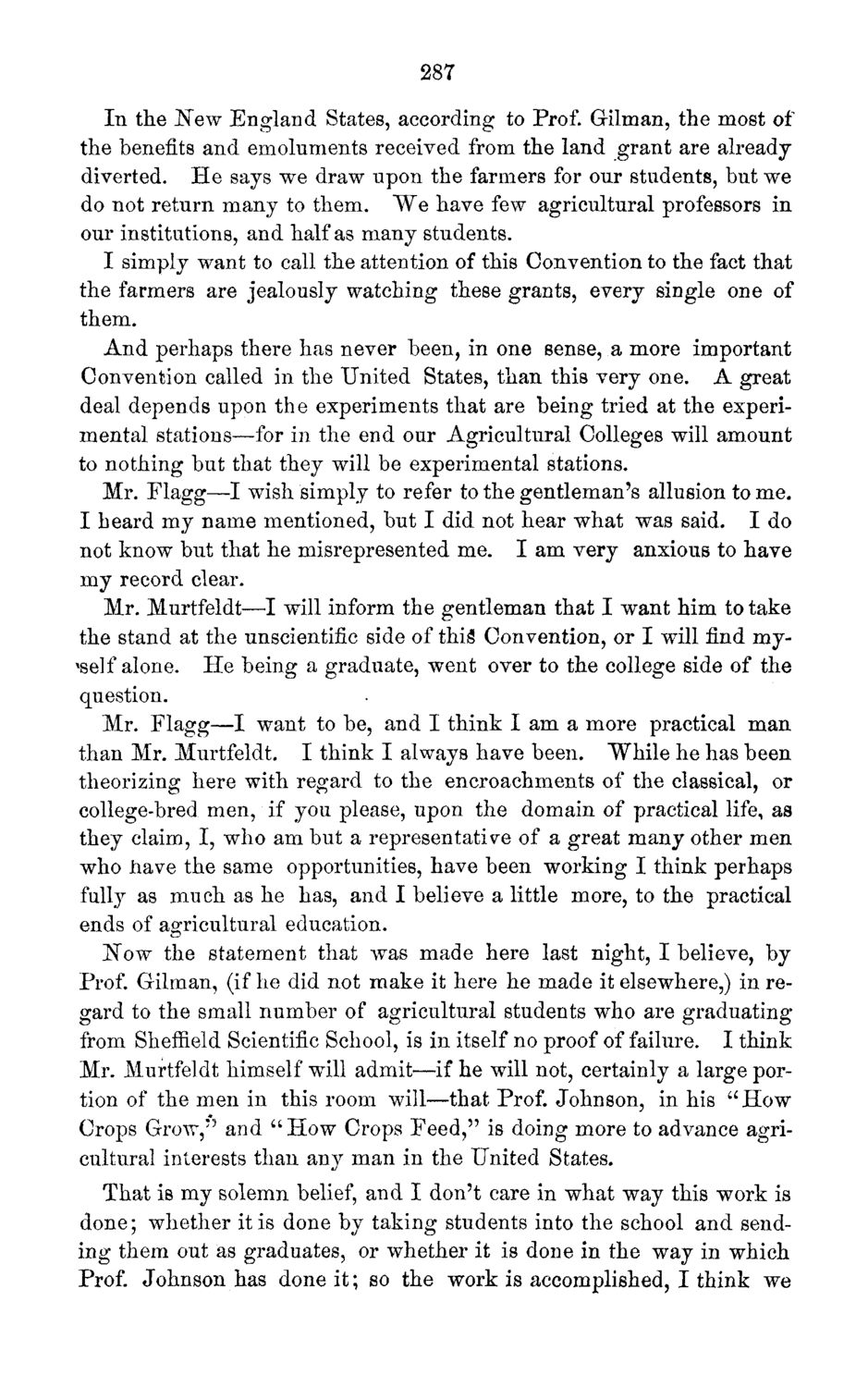| |
| |
Caption: Board of Trustees Minutes - 1871
This is a reduced-resolution page image for fast online browsing.

EXTRACTED TEXT FROM PAGE:
287 In the New England States, according to Prof. Gilman, the most of the benefits and emoluments received from the land grant are already diverted. He says we draw upon the farmers for our students, but we do not return many to them. "We have few agricultural professors in our institutions, and half as many students. I simply want to call the attention of this Convention to the fact that the farmers are jealously watching these grants, every single one of them. And perhaps there has never been, in one sense, a more important Convention called in the United States, than this very one. A great deal depends upon the experiments that are being tried at the experimental stations—for in the end our Agricultural Colleges will amount to nothing but that they will be experimental stations. Mr. Flagg—I wish simply to refer to the gentleman's allusion to me. I heard my name mentioned, but I did not hear what was said. I do not know but that he misrepresented me. I am very anxious to have my record clear. Mr. Murtfeldt—I will inform the gentleman that I want him to take the stand at the unscientific side of this Convention, or I will find myself alone. He being a graduate, went over to the college side of the question. Mr. Flagg—I want to be, and I think I am a more practical man than Mr. Murtfeldt. I think I always have been. "While he has been theorizing here with regard to the encroachments of the classical, or college-bred men, if you please, upon the domain of practical life, as they claim, I, who am but a representative of a great many other men who have the same opportunities, have been working I think perhaps fully as much as he has, and I believe a little more, to the practical ends of agricultural education. Now the statement that was made here last night, I believe, by Prof. Gilman, (if he did not make it here he made it elsewhere,) in regard to the small number of agricultural students who are graduating from Sheffield Scientific School, is in itself no proof of failure. I think Mr. Murtfeldt himself will admit—if he will not, certainly a large portion of the men in this room will—that Prof. Johnson, in his " H o w Crops Grow/ 3 and " How Crops Feed," is doing more to advance agricultural interests than any man in the United States. That is my solemn belief, and I don't care in what way this work is done; whether it is done by taking students into the school and sending them out as graduates, or whether it is done in the way in which Prof. Johnson has done it; so the work is accomplished, I think we
| |